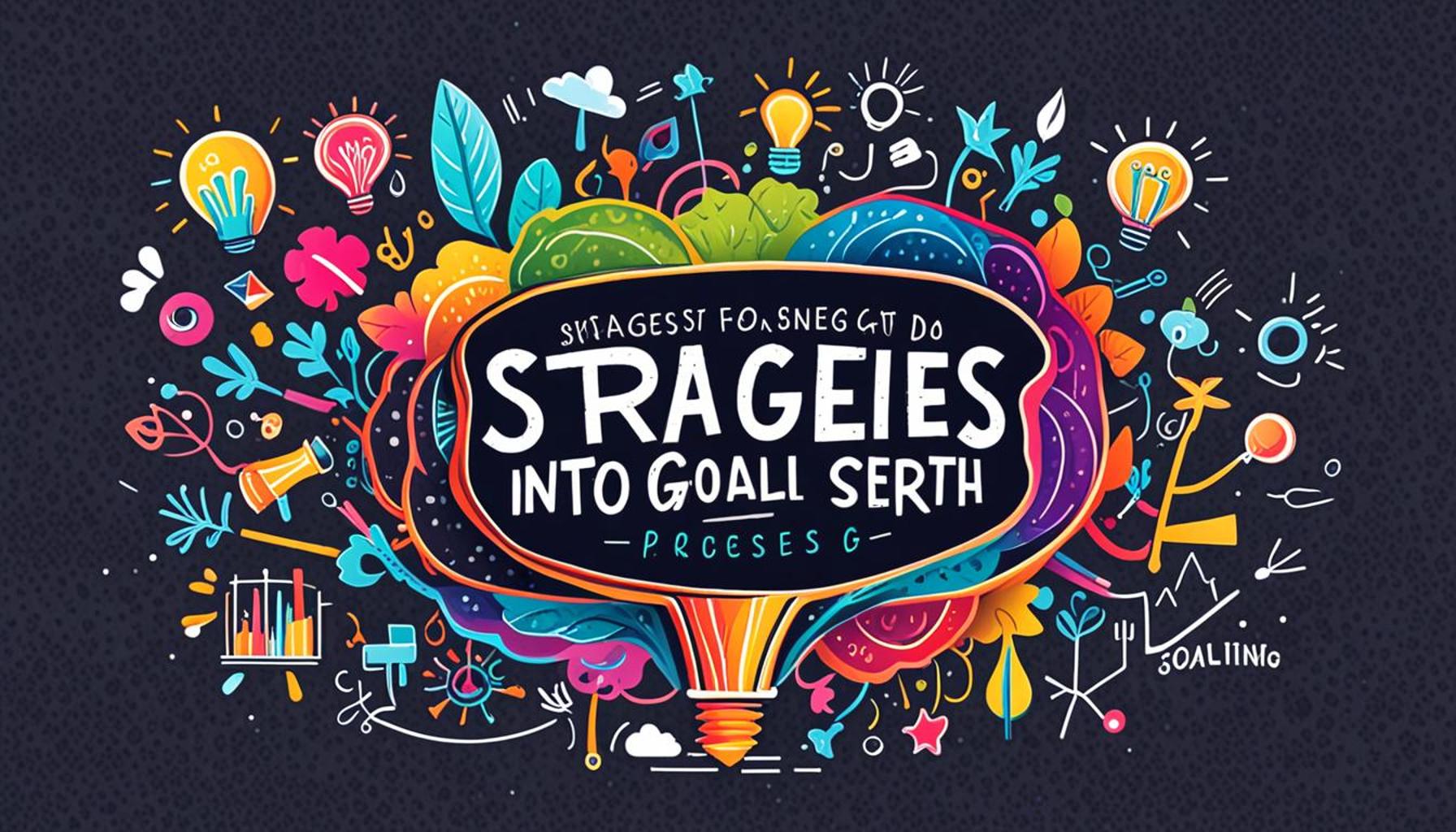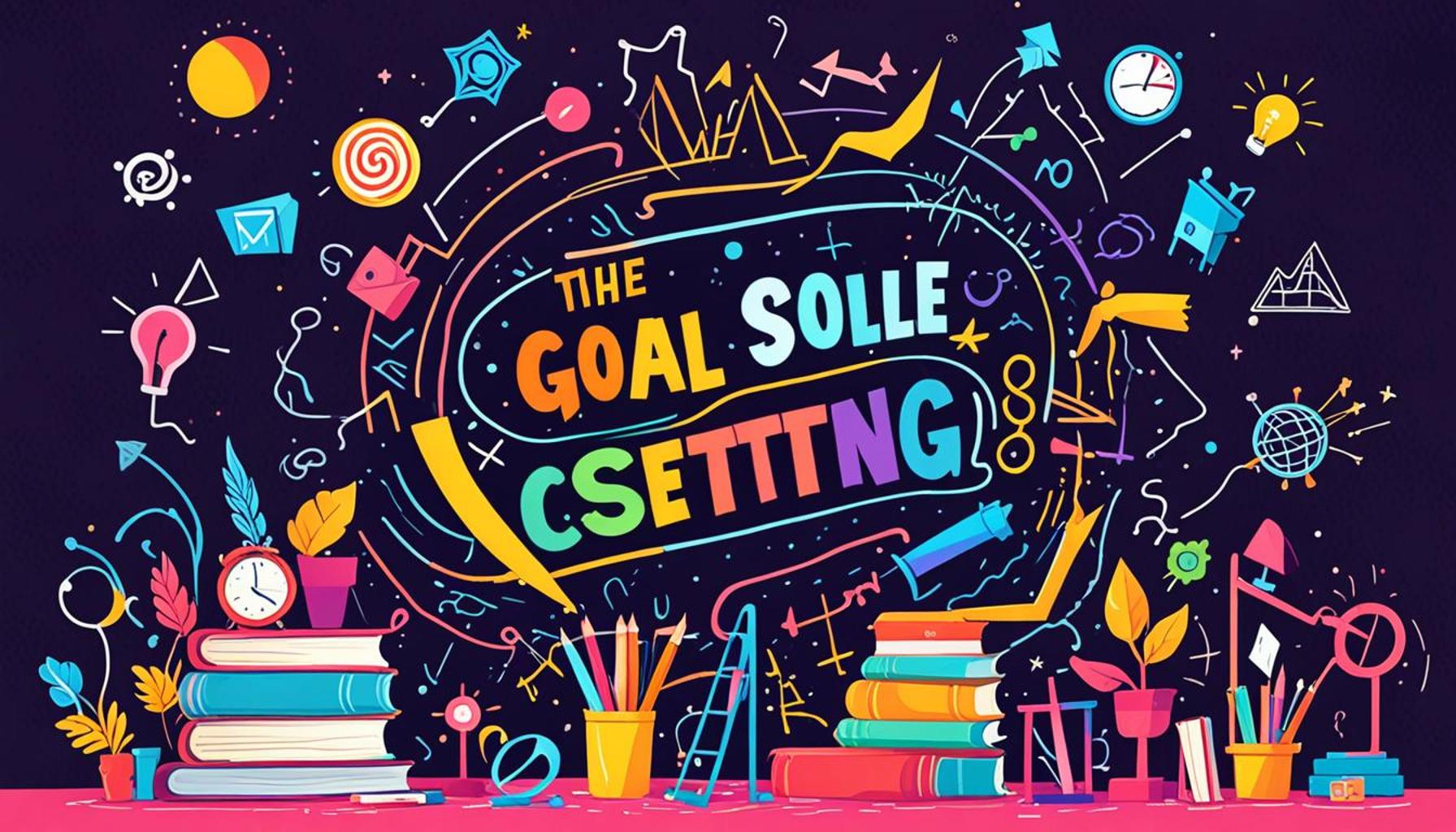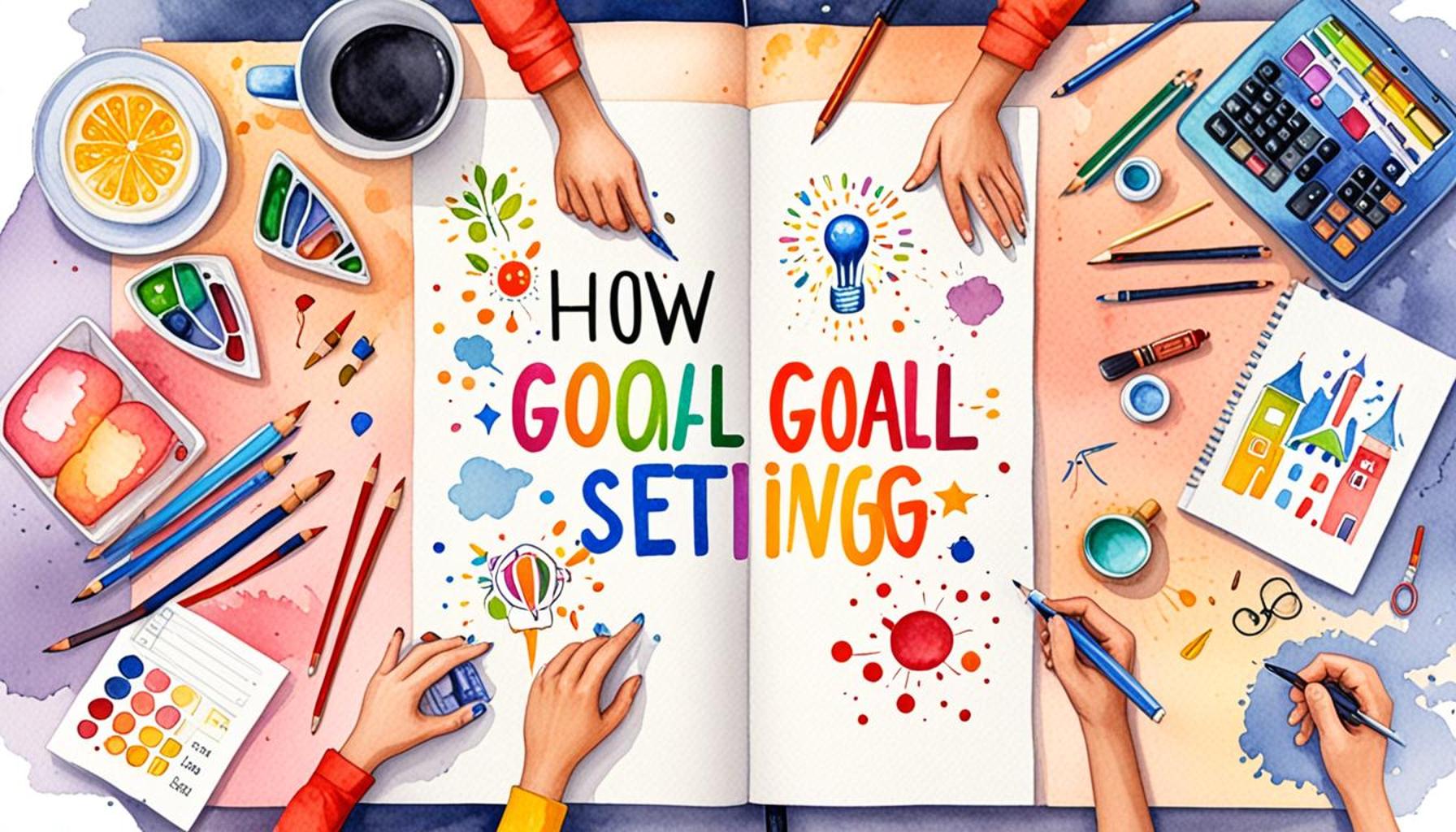Strategies for Redefining Goals After Failures and Maintaining a Resilient Growth Mindset

Understanding Failure and Building a Path Forward
Experiencing failure can often feel overwhelming, especially when it leads to self-doubt and uncertainty. In Nigeria, where cultural expectations can amplify these feelings, it’s essential to find effective strategies to overcome these challenges. Embracing discomfort is a fundamental aspect of personal development, and recognizing the potential for growth in trying circumstances can make a profound difference in one’s mindset.
The Importance of a Growth Mindset
Adopting a growth mindset is crucial in transforming perceived failures into learning experiences. This concept, popularized by psychologist Carol Dweck, emphasizes the belief that abilities and intelligence can be developed with effort and persistence. Here are some vital aspects to consider:
- Reflection: Taking the time to analyze what went wrong can provide valuable insights. For instance, if an entrepreneurial venture in Lagos did not yield expected results, one can dissect factors such as market demand, pricing strategies, or customer feedback, ultimately gaining lessons that will inform future decisions.
- Realignment: Adjusting your goals is a necessary step after reflecting on your experiences. This may involve setting more realistic, incremental goals that account for the lessons learned. Instead of aiming for an unrealistic market share, focusing on building a loyal customer base could be a more achievable and meaningful target.
- Resilience: Cultivating mental strength is essential to recover from setbacks. Resilience allows individuals to withstand trauma and adversity, pushing through challenges with renewed vigor. Practitioners in Nigeria, like artists from the vibrant Nollywood industry, often share how they overcame failures by persisting and adapting their craft over time.
Lessons from Successful Nigerians
Many successful figures in Nigeria, ranging from tech leaders like Iyinoluwa Aboyeji to creatives like Chimamanda Ngozi Adichie, have faced setbacks that initially seemed insurmountable. Their paths illustrate the notion that failures are often stepping stones to greater achievements. Aboyeji, for example, co-founded Andela, which faced early criticism but has since revolutionized how tech talent is nurtured across the continent.
It’s important to understand that setbacks are not a reflection of your abilities but rather opportunities for growth. The experience garnered along the way often equips individuals with the tools necessary to push boundaries in their pursuits. By focusing on goal redefinition and maintaining a resilient mindset, you can effectively traverse the complexities of personal and professional landscapes.
Empower Yourself with Targeted Strategies
This article delves into targeted strategies that will empower you to redefine your objectives and cultivate a resilient growth mindset. As you explore these strategies, you’ll find renewed motivation and clarity on your path forward. Whether you’re navigating the competitive job market in cities like Abuja or leading a community initiative, embracing failure as a part of the journey can redefine your approach to success. Remember, each setback is a chance to gather insights, grow, and ultimately thrive.
LEARN MORE: This related article may interest you
Transformative Strategies for Goal Redefinition
To navigate the challenging terrain following a failure, one must actively employ strategies for redefining goals. This process not only aids in regaining direction but also fosters a resilient growth mindset that can adapt in the face of adversity. Here are some focused approaches to consider:
Setting SMART Goals
A key strategy in redefining goals involves creating SMART goals. This acronym stands for Specific, Measurable, Achievable, Relevant, and Time-bound. By adhering to this framework, individuals can shape their objectives into clear and actionable plans. For instance, rather than saying, “I want to improve my business,” a more effective goal would be, “I aim to increase my client base by 20 percent within six months.” This specificity allows for easier tracking and enhanced motivation.
Utilizing Feedback for Continuous Improvement
Another impactful strategy focuses on leveraging feedback. Gathering insights from colleagues, mentors, or even customers can provide a varied perspective on perceived failures. Utilizing tools like surveys or informal conversations can uncover critical lessons. In Nigeria’s dynamic business environment, this feedback may inform your adjustments in approach, making your path forward more sustainable. Regularly revisiting and refining your strategies based on feedback can lay the groundwork for successful redefinition of your goals.
Creating a Support System
The role of a support system cannot be overstated in maintaining a resilient growth mindset. Surrounding yourself with positive influences — be it family, friends, or professional networks — can serve as a vital anchor during turbulent times. A strong support network enables you to draw strength and encouragement, which helps in navigating failures with confidence. Consider forming or joining local communities or groups that share similar objectives. Platforms like LinkedIn or community meet-ups can facilitate connections with like-minded individuals who can inspire and motivate you.
Embracing a Learning-Oriented Approach
Shifting your focus from mere success to learning opportunities is crucial. In Nigeria, with its rich history of resilience, embracing a learning-oriented approach can transform failures into lessons. This paradigm shift encourages you to ask questions like, “What can I learn from this experience?” instead of dwelling solely on what went wrong. By viewing challenges through a lens of inquiry and curiosity, you create space for innovation and improvement, setting a powerful foundation for your future endeavors.
Practicing Self-Compassion
Finally, practicing self-compassion forms an integral part of redefining your mindset. It’s essential to acknowledge that everyone faces setbacks and that failure is a natural part of growth. Instead of engaging in harsh self-criticism, focus on being kind to yourself during challenging moments. For instance, recognize your efforts and celebrate small wins, which can bolster your confidence and momentum. This practice not only helps in healing but also in fostering a more resilient approach to future setbacks.
By applying these strategies effectively, individuals can navigate the process of redefining their goals and cultivating a resilient mindset. Each of these strategies serves as a stepping stone, guiding you toward a path of continuous improvement and success, regardless of past failures.
Strategies for Redefining Goals After Failures and Maintaining a Resilient Growth Mindset
In the journey of personal development and achievement, redefining goals after experiencing failures is paramount. Embracing failure as a step toward growth rather than a setback is essential in cultivating a resilient growth mindset. Here are strategic approaches to effectively navigate this process:
1. Reflective Analysis
Understanding why a particular goal was not met is vital. Engage in a thorough analysis of the factors that contributed to the failure. Questions like “What could I have done differently?” or “Were my goals realistic?” can provide insights. This reflective practice allows you to transform negative experiences into a learning opportunity.
2. Break Goals into Smaller Steps
Once you have gathered insights from your reflection, consider breaking your overarching goals into smaller, manageable steps. This approach not only makes large goals feel less overwhelming but also allows for incremental progress, which can enhance motivation and confidence with each accomplishment.
3. Embrace a Continuous Learning Mindset
Maintain an attitude that values learning over perfection. Seek feedback from peers or mentors and be open to new ideas. This will help you to revise your goals based on realistic assessments and enable you to pivot your strategies more efficiently.
4. Visualization Techniques
Visualizing your success can significantly impact your motivation levels. Create a vision board or use journaling to articulate not just your goals, but also the emotions and experiences you wish to achieve. This reinforces your commitment to redefining your path and achieving your new objectives.
5. Accountability Partner
Engage an accountability partner who shares similar aspirations or goals. This can provide mutual support and encouragement as you redefine and pursue new objectives. A partner can inspire you to stay on track and hold you accountable for your commitments.
| Category | Details |
|---|---|
| Reflective Analysis | Identify factors contributing to previous failures. |
| Incremental Steps | Break larger goals into actionable small steps. |
| Continuous Learning | Seek feedback and welcome new perspectives. |
| Visualization | Use visual aids to reinforce commitment to goals. |
| Accountability Partner | Collaborate with someone to stay motivated. |
By implementing these strategies, you can cultivate a more resilient growth mindset, transform setbacks into stepping stones, and ultimately redefine your goals for greater success. Recognizing that failures are not the end but simply part of the journey will empower you to move forward with confidence and adaptability.
CHECK OUT: Click here to explore more
Navigating Roadblocks and Overcoming Adversity
Redefining goals after failure is not a linear journey; it involves resilience, adaptability, and a nuanced understanding of self. In Nigeria, where the social and economic landscape is often unpredictable, the ability to pivot and recalibrate goals is a treasured skill. Below are additional strategies that deepen the understanding of how to overcome setbacks and sustain a growth mindset.
Visualizing Success through Mind Mapping
One innovative approach to redefine goals is through mind mapping. This visual technique enables individuals to brainstorm and organize their thoughts effectively, creating a blueprint for future success. By laying out ideas connected to central themes, you can identify pathways to your objectives. For instance, if your initial goal of launching a tech startup met with hurdles, a mind map can help visualize new opportunities — from exploring alternative markets to adjusting your services. This clarity and structure can inspire fresh motivation, providing a roadmap that is both reconceptualized and actionable.
Adapting an Agile Mindset
Incorporating an agile mindset into your personal and professional goals can significantly enhance your adaptability. Originally rooted in software development, this concept emphasizes iterative progress through small, manageable steps. Instead of sticking to rigid timelines, consider bounding your goals into smaller sprints. For instance, rather than focusing on the long-term goal of expanding your business across Nigeria, you could aim for establishing a strong foothold in one city first within three months. This incremental approach allows for quick pivots based on real-time feedback and ensures ongoing alignment with market demands.
Harnessing Technology for Goal Tracking
In our digital age, utilizing technology can drastically improve how goals are redefined and tracked. Various applications and software exist that facilitate project management and productivity, making it simpler to set, monitor, and adjust your goals. Tools like Trello or Asana can help prioritize tasks and visualize progress. Furthermore, employ analytic tools to gather insights about your performance — whether running a small business or pursuing personal development. In Nigeria, where mobile phone access is widespread, leveraging technology can streamline your journey toward goal redefinition, empowering you to maintain motivation and engagement.
Engaging in Personal Reflection and Journaling
Engaging in regular personal reflection through journaling can provide clarity and foster growth. Writing about experiences — both the successes and failures — cultivates a deeper understanding of your emotional responses and thought processes. For Nigerians grappling with the highs and lows of entrepreneurship, journaling serves as a powerful tool for introspection. Documenting your goals, setbacks, and the lessons learned can highlight patterns that may require adjustment. This self-aware approach fosters resilience, transforming past failures into guiding principles that pave the way toward future achievements.
Seeking Professional Development Opportunities
Lastly, investing in professional development can aid in redefining goals following setbacks. Participating in workshops, courses, or mentorship programs can equip you with new skills and perspectives. In Nigeria’s vibrant educational landscape, numerous organizations offer development opportunities across various fields. By consistently seeking knowledge and experiences, you reinforce your commitment to growth and flexibility while maintaining a clear focus on your redefined objectives.
Through these enriched strategies, individuals can not only define and adjust their goals following failures but also cultivate a resilient mindset willing to embrace the turbulence of life and turn obstacles into opportunities for continued growth and success.
SEE ALSO: Click here to read another article
Conclusion: Embracing the Journey of Growth and Reinvention
In conclusion, redefining goals after experiencing failures is a journey that requires a multifaceted approach, encompassing resilience, adaptability, and a willingness to learn. By employing strategies such as mind mapping, adopting an agile mindset, leveraging technology for tracking progress, engaging in personal reflection, and pursuing professional development opportunities, individuals can transform setbacks into stepping stones towards success.
In Nigeria’s dynamic and often challenging environment, developing a resilient growth mindset is critical. It empowers individuals to navigate uncertainties and emerge stronger from the trials they face. By viewing failures not as absolutes but as valuable lessons, one can foster a mental framework that encourages continuous improvement and innovation.
As you incorporate these strategies into your life, remember that growth is not about avoiding failure altogether; rather, it is about cultivating the capacity to respond positively to it. Your ability to redefine your goals and maintain a focus on progress can redefine your narrative in both personal and professional spheres. Embracing challenges along the way is pivotal to creating new opportunities and realizing your fullest potential. As you leave this article, consider which strategy resonates the most with your current journey and take the next step towards intentional and resilient goal setting.


